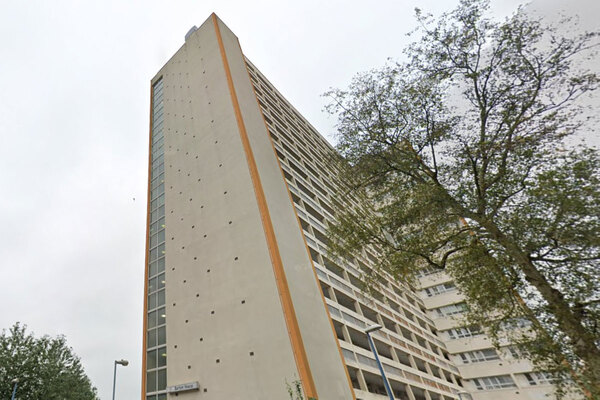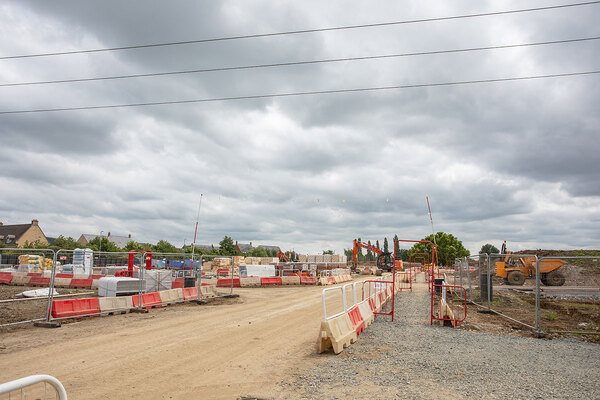Jenrick defends permitted development but admits ‘some poor quality’ homes delivered
Housing secretary Robert Jenrick has defended policies allowing developers to bypass council planning departments while admitting that “some” homes delivered have been poor quality.
Speaking at an event held by think tank Policy Exchange in London yesterday, Mr Jenrick argued permitted development rights have been “a great force in bringing new properties onto the housing market”.
But he said the Ministry of Housing, Communities and Local Government is examining why some homes delivered through the policy have not been up to scratch.
He said: “The original [permitted development] of commercial to residential I think has brought forward 40,000 or 50,000 new properties that wouldn’t otherwise have been there.
“Some have been poor quality and that’s what we’re currently reviewing, as you may know, as a department, to see if we can learn lessons from that and ensure that the minority doesn’t damage the freedom for people to use those rights more broadly across the country.”
Under permitted development rights, commercial and office buildings can be converted into housing without needing planning permission.
The rules were significantly expanded under former communities secretary Eric Pickles in 2013 with the intention of boosting housebuilding – and around 100,000 homes have been delivered this way over the past five years.
However, critics of the policy say it allows developers to build homes well below space standards, remote from infrastructure or with insufficient natural light, as well as to dodge affordable housing obligations.
Labour has pledged to scrap permitted development, while the Local Government Association, the Royal Institute of British Architects and the Town and Country Planning Association are among bodies to have voiced concerns.
Mr Jenrick signalled he would like to move towards an approach of “permitted development in principle”, with developers required to work with councils to agree on details such as space standards, environmental standards and height.
He said: “The new permitted development that I’ve created, which is demolition to rebuild, is a permitted development in principle and I think this is perhaps the way forwards.
“We’re giving people the freedom and the certainty to know that they can purchase a property and demolish it, such as a derelict 1960s office building, which is neglected and needs a new future. But they will then still have to work with the local authority to determine what is the height, what is the façade, what are the environmental standards, what might be the space standards within the homes that are going to be built.
“So you have certainty and freedom for developers married with quality of design and environmental standards. That I think is the approach that I will be taking as secretary of state.”












